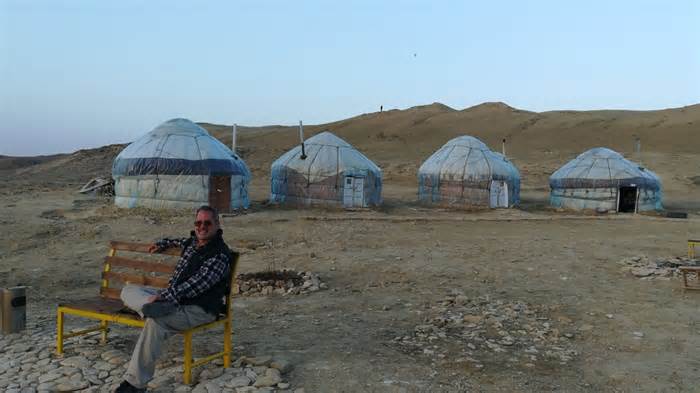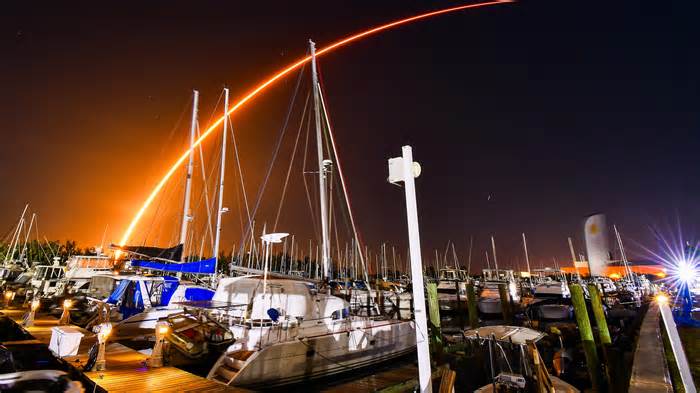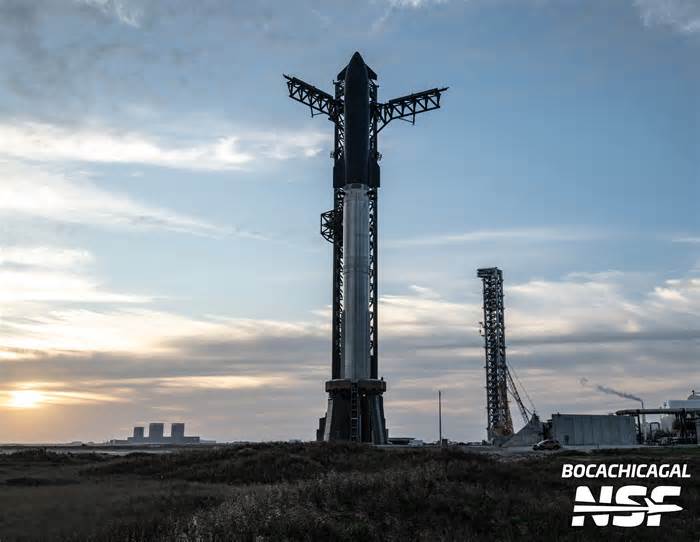
'Never a boring moment': The couple who left Canada to live in former Soviet Central Asia
- by CNN on MSN.com
- Oct 03, 2024
- 0 Comments
- 0 Likes Flag 0 Of 5

The information you need to know, sent directly to you: Download the CTV News App
Despite initially fearing they had found themselves in an austere-looking former Soviet backwater, prone to power cuts and intolerable heatwaves, the couple say moving there was an incredible experience that offered positives no longer found in the West.
According to Zora, originally from the former Czechoslovakia, they “figured it was time to resume our nomadic existence” after their daughter left home. When they discovered that Kazakhstan was looking for teachers, the couple thought it “sounded like an interesting project,” and signed up, spending nearly five years there.
“I think most people are not aware (of) how large the country is geographically and how many minorities live there,” she says.
Teacher Zora Keffer, pictured in Bukhara, moved to Uzbekistan with her husband Dave in 2020 when they were both offered job positions in the country. (Zora Keffer via CNN Newsource)
New adventure
Once they’d finished up in Kazakhstan, the Keffers accepted a work contract in Kuwait, and ended up getting “stuck” in the Middle Eastern country during the Covid-19 pandemic. When border restrictions began lifting, they were ready for something new once again.
“It’s difficult sometimes, to get back to normal living,” Zora says of their desire to keep moving from place to place.
“You get to experience this sometimes highly unpredictable existence. It’s sometimes frustrating. But it’s exciting.”
In March 2020, Zora and Dave received job offers at a school for “gifted children” in Uzbekistan, and began to mull over the possibility of moving over there.
Although they were less than enthusiastic when they looked up where they’d be living in – Nukus, the sixth-largest city in Uzbekistan – and found the description less than inspiring, they ultimately decided to give it a go.
When they arrived in Uzbekistan in 2020, Zora was struck by the architecture of the country, describing it as “a mixture of unflattering, utilitarian, Soviet-era buildings side-by-side with modern high rises.”
While the country was still “under the Covid cloud,” Zora and Dave, who both had a multiple-entry work visa, settled in relatively easily, and were warmly welcomed.
“The locals are polite and friendly in the extreme,” says Zora. “And Dave and I have been fortunate to participate in and to enjoy many of the traditions that such a colourful society offers.”
Cultural differences
Although life in a country like Uzbekistan can be difficult for newcomers to adapt to, Zora explains that their time in Kazakhstan meant that it wasn’t quite such a tough adjustment for the two of them.
“It’s all Central Asia,” she says. “They are both ex-Soviet republics. Very similar cultures. So Uzbekistan was not a culture shock.”
And while the Keffers initially had reservations about Nukus, which has an estimated population of around 329,000, they loved living there, and felt at ease within the community.
“The people just love practicing English,” says Zora. “It’s actually really funny. They stop you all the time, and they want to chat (in English).”
As neither Zora or her husband speak Uzbek, they often relied on Google Translate, when it came to communicating with locals.
“Google Translate is your best friend here,” she adds.
One of the things Zora loved most about Uzbekistan was that she was always having new experiences.
“It’s never boring,” she says. “There’s never a boring moment here.”
However, there was one thing she was never able to get used to: the frequent power outages which occurred around the time Russia invaded Ukraine in February 2022.
“It’s hot here,” she says. “So when you can’t get the air-conditioning working, it’s not fun. I (can) tell you that much.
“You have to be very flexible, because you just don’t know what’s gonna happen. Flexibility is number one. This is not a place for rigid people.”
While Zora and her husband adapted to life in Uzbekistan easily, she points out that having each other to lean on made a big difference, and she says it’s likely much harder for those who relocate by themselves.
“It’s a small community,” she says of Nukus. “You definitely do not have the same kind of pool of expats that say, Tashkent, the capital, has.”
“You don’t get that here, because it’s a small town. So you have to work a little harder at meeting people.”
Sense of community
Zora says she was heartened by the strength of the local community and its members who were ready and willing to go above and beyond for their neighbors.
“The community is much stronger here,” she says. “Families, they are tighter. We kind of lost that in the West, if you know what I mean.
“People here still depend so much on each other to some degree. Because you don’t have the same social safety net. So it’s a necessity really. If things go wrong, you’ve got your family.”
While they spent most of their time in Nukus, Zora and Dave traveled to capital city Tashkent every six weeks or so “for a nice getaway weekend.”
In 2021, the couple took some time off work to explore the cities of the old Silk Road – Samarkand, Bukhara and Khiva.
“I cannot imagine actually leaving Uzbekistan without seeing these fabled cities,” she says.
“They really are truly amazing. It’s like going back in time. And falling into one of those stories like ‘One Thousand and One Nights’ (a collection of Middle Eastern folktales). It’s magical.”
According to Zora, she and Dave were impressed by Khiva, a small town situated in the southeast of Uzbekistan.
“People don’t know much about Khiva, because it’s not in the region where Samarkand and Bukhara are,” she says, before describing the “scary experience” of climbing the Islam Khodja minaret, which measures 45 meters (148 feet).
“So many people miss it. But it’s also a wonderful city with beautiful architecture.”
When asked of her favorite thing about living in Uzbekistan, Zora says that this was undoubtedly her students.
“The kids here are so nice,” she says. “That is actually the biggest plus, in my opinion, as a teacher, because we don’t have any discipline problems.”
Zora’s also a big fan of the food in Uzbekistan, describing the fruits and vegetables as “out of this world.”
“They are so good compared to say, Canada or North America because of the weather,” she says.
“You’ve got sunshine here all the time. And the taste is really amazing compared to the supermarket products in Canada.”
Developing country
Although they found Uzbekistan to be very affordable, Zora notes that this is “all relative” as they were earning a “decent salary.”
“If we were earning a local salary, then obviously it would not be much cheaper,” she says.
When asked what she missed about living in Canada, Zora confesses that going to see blockbuster movies that aren’t dubbed over was high up there on the list.
However, the couple did manage to go to watch some live ballet and modern dance performances in Tashkent.
“That is a big plus,” she says. “Because the tickets are very inexpensive for us. And those pieces were wonderful.
“So you’ve got to focus on that. No movies, but wonderful dance.”
The couple were able to participate in traditional celebrations, including Nowruz, a festival marking the Persian New Year, which is an official public holiday in Uzbekistan every March 21.
“Boiling a pudding in a huge cauldron for 10 hours is a big part of it,” explains Zora.
Please first to comment
Related Post
Stay Connected
Tweets by elonmuskTo get the latest tweets please make sure you are logged in on X on this browser.
Sponsored
Popular Post
tesla Model 3 Owner Nearly Stung With $1,700 Bill For Windshield Crack After Delivery
33 ViewsDec 28 ,2024
Middle-Aged Dentist Bought a Tesla Cybertruck, Now He Gets All the Attention He Wanted
32 ViewsNov 23 ,2024






 Energy
Energy


















